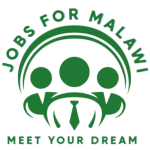Job Description
Mission and objectives
UNDP works in more than 170 countries and territories, helping to achieve the eradication of poverty and the reduction of inequalities and exclusion. We help countries develop policies, leadership skills, partnering abilities, institutional capabilities and build resilience to sustain development results. UNDP has been present in Malawi since 1964. Working closely with the Government of Malawi, civil society and the private sector, UNDP’ s work aims to contribute to economic growth, sustainable environmental management, and democratic governance and accountability in Malawi. UNDP’s Country Programme Document is closely aligned to the Malawi Growth and Development Strategy (MDGS III) and supports Malawi’s aim to achieve the Sustainable Development Goals by 2030. UNDP ‘s programme is designed to address the interlinked issues of poverty, inequality and vulnerability to shocks and is managed within two portfolios: Responsive Institutions and Citizen Engagement which works towards strengthening effective, accountable and inclusive governance that promotes civic engagement, respect for human rights, rule of law, peace and democracy. It also works towards strengthening data generation and analysis. Resilience and Sustainable Growth which focusses on enhancing economic innovation, inclusive business, job creation, and renewable energy access. It also works towards helping Malawi adapt to climate change and build resilience to disasters.
Context
Emerging and future digital technologies and the opportunities they offer will profoundly improve the lives of those furthest behind. Recognizing this potential, the United Nations Development Programme (UNDP) has launched an organization-wide digital transformation that will splice digital into its DNA—harnessing its potential to do good for more people, better and faster. UNDP’s 2019-2021 Digital Strategy has created a new UNDP Digital Unit, charged with leading the next wave of innovation in sustainable development.
Following the successful implementation of the National ID registration with over 11 million people registered and smartcards distributed, a successor project Inclusive Digital Transformation for Malawi (IDT4M) has been developed to strengthen civil registration among other key areas. Digital transformation demands a whole-of-society approach. This means actively and consistently engaging actors from the government, the private sector, civil society, academia, and individual residents to develop and strengthen local digital ecosystems built on inclusivity, sustainability, accountability, and rights. UNDP’s Inclusive Whole-of-Society Digital Transformation Framework sets out the most important domains and areas that actors from across society must collaborate on. Many of these areas demand action by broad coalitions and partnerships that cut across the public, private, and non-profit sectors. Using this conceptual framework, the project will be incorporating the key areas of the framework within three project outputs with an overall goal of promoting Inclusive Digital Transformation.
UNDP is harnessing digital capabilities to advance everyone, beginning with developing digital initiatives, expanding innovation, and effectively communicating these organizational changes both internally and externally. To extend UNDP digital footprint globally, UNDP requires support in software development for various initiatives such as Rule of Law initiatives, Development Effectiveness programme to promote and articulate digital agenda. Against this backdrop, UNDP intends to recruit UNVs to develop software solutions, platforms and digital projects for various initiatives.
Task description
Within the delegated authority and under the supervision of ICT Specialist or his/her designated mandated representative(s), the UNV Software Developer will:
- Assess existing ecosystems across platforms, propose open-source solutions, and stay updated on industry trends.
- Prepare reports on findings for stakeholders.
- Collaborate with stakeholders to understand project requirements, analyze business processes, and develop strategic plans aligning technical solutions with business objectives.
- Gather, analyze, and document comprehensive project requirements.
- Create detailed technical specifications for all platforms, including functional and non-functional requirements, data models, and API specifications.
- Implement version control systems, define coding standards, set up code review processes, and establish CI/CD pipelines for automated build, test, and deployment.
- Develop rapid prototypes or proof of concepts using appropriate tools (e.g., React Native for mobile).
- Create wireframes for web and desktop applications, conduct user testing, and iterate based on feedback.
- Evaluate and select appropriate open-source technologies for each platform, ensuring compatibility, performance, and long-term viability. Document technology stack choices with justifications.
- Guide development teams, implement scalable backend services, ensure security measures across the application stack, and conduct regular architecture reviews.
- Provide accurate time and resource estimates, participate in sprint planning, identify and mitigate technical risks, and report progress to stakeholders.
- Maintain proficiency in multiple programming languages, expand expertise in cross-platform and native development, enhance knowledge of database technologies, and improve DevOps skills.
- Facilitate communication between teams, lead cross-functional meetings, maintain comprehensive documentation, mentor junior developers, and ensure consistency in architectural approaches across projects.
- Results/expected outputs: As an active UNDP team member, efficient, timely, responsive, client-friendly and high-quality support rendered to UNDP and its beneficiaries in the accomplishment of her/his functions, including:
- Comprehensive system architecture diagrams and technical specifications for mobile, web, and desktop platforms
- Detailed API designs, data flow diagrams, and database schemas for both relational and NoSQL databases
- Technology evaluation reports with recommendations for open-source solutions across all platforms
- Coding standards documentation and code review guidelines for multiple programming languages (JavaScript/TypeScript, Java, Kotlin, Swift, C# etc.)
- Functional prototypes and proof of concepts for critical system components, including cross-platform mobile applications using React Native
- Production-ready, scalable backend services implemented using Node.js and Express.js, capable of supporting multiple front-end applications
- Fully functional, responsive web applications developed using React.js, adhering to modern web development practices and performance optimization techniques
- Native mobile applications for Android (Java/Kotlin) and iOS (Swift), including implementation of platform-specific features and adherence to respective design guidelines
Eligibility criteria
Age
18 – 80
Nationality
Candidate must be a national or legal resident of the country of assignment.
Requirements
Required experience
- 3 years of experience in Full-stack development expertise with proficiency in multiple programming languages (JavaScript/TypeScript, Java, Kotlin, Swift, C#, Python, Ruby etc), advanced web development skills (React.js, Node.js, Express.js, HTML5, CSS3), cross-platform and native mobile development (React Native, Android, iOS), desktop application development (Windows, Linux), and RESTful API design and GraphQL
- Experience with relational (PostgreSQL, MySQL, SQLite) and NoSQL databases (MongoDB, Cassandra), proficiency in ORM frameworks, and ability to design and implement scalable, distributed systems and microservices architectures DevOps and cloud platform proficiency, including version control (Git), CI/CD pipelines, containerization (Docker), cloud platforms (AWS, Azure, Google Cloud), and security best practices (OWASP principles, authentication/authorization mechanisms)
- In-depth understanding of software development methodologies (Agile, Scrum) and experience leading development teams in these environments
- Experience in providing technical assistance and support to users, with practical knowledge of various computer platforms, applications, and diagnostic tools
- Proven track record of delivering innovative solutions to complex technical challenges and ability to work independently and collaboratively in a fast-paced environment
- Strong communication skills with the ability to explain complex technical concepts to both technical and non-technical stakeholders, and effective collaboration in multicultural teams
- Proficiency in MS Office applications, general computer literacy, experience with open-source technologies and development practices, and familiarity with emerging trends in software development
- Self-motivated, ability to work with minimum supervision; ability to work with tight deadlines.
- Have affinity with or interest in ICT work, volunteerism as a mechanism for durable development, and the UN System and effectively in a challenging environment;
Area(s) of expertise
Information technology
Driving license
–
Languages
English, Level: Fluent, Required
Required education level
Bachelor degree or equivalent in Computer Science, Information Systems, Telecommunications, Engineering and/or related fields.
Competencies and values
Core values:
• Care
• Respect
• Integrity
• Trust


